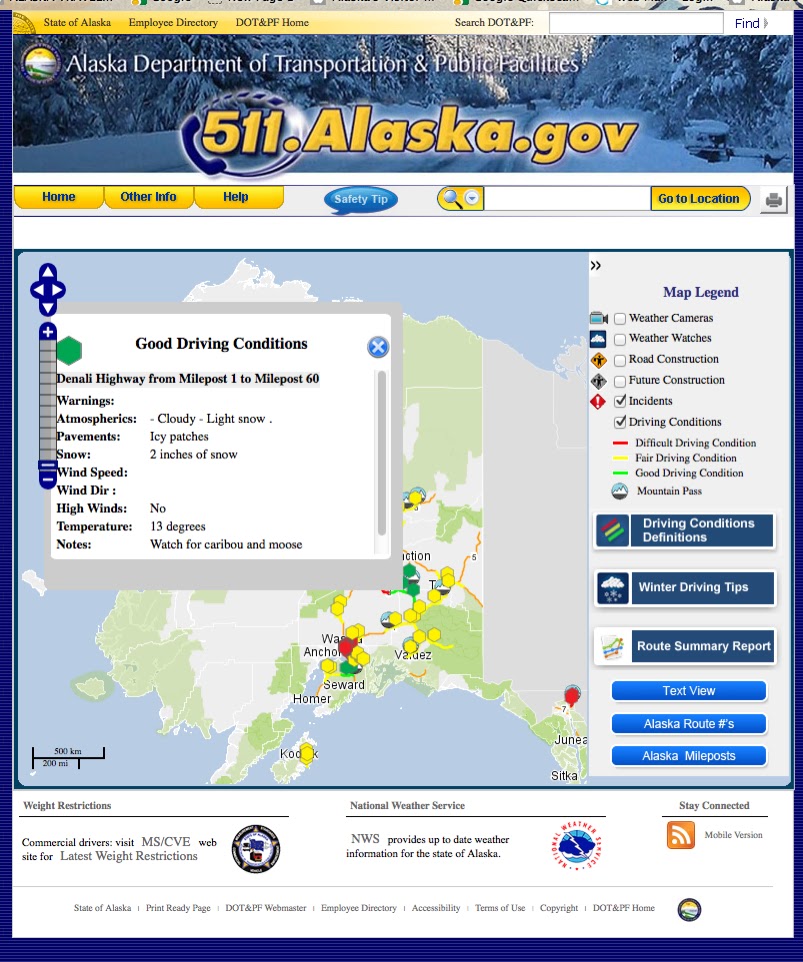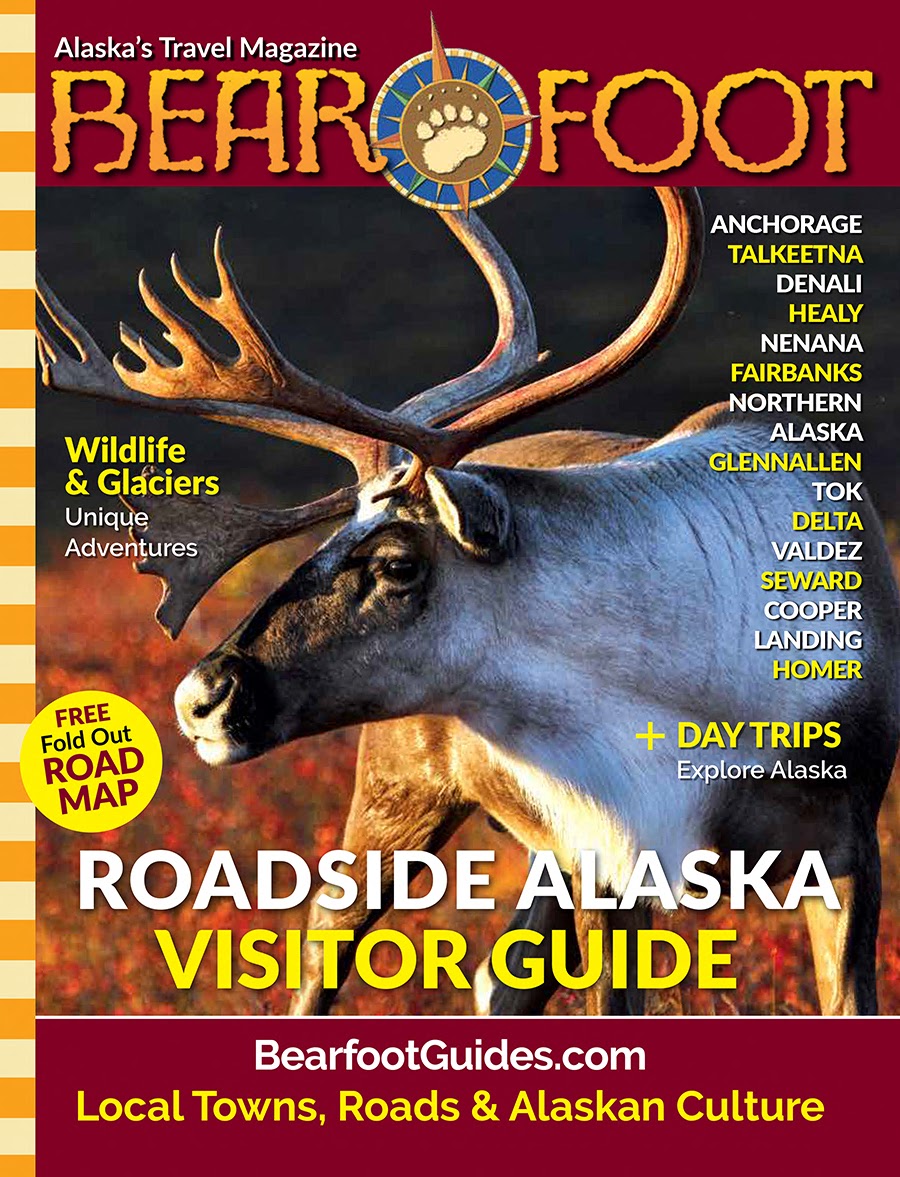Chapter 2: Alone & Exhausted, Lonnie & Rose Struggle With The Virus
COUNTRY JOURNAL Fighting Covid-19 In The Copper Valley Rose & Lonnie in younger days. (File Photo, Country Journal) Chapter 2 10 Times W...
COUNTRY JOURNAL
Fighting Covid-19 In The Copper Valley

Rose & Lonnie in younger days. (File Photo, Country Journal)

Chapter 2
10 Times Worse
For Lonnie, this was so exhausting. "I remember coming back home. Went to sleep, and went back down to CRNA the next day." Even though he now knew he had COVID, Lonnie still didn't understand the precariousness of their situation.
Yet, "At that point, I was really sick." And how sick was that? Could he describe it?
Well, said Lonnie, "I don't know if you ever drank in your life and drank so much you have a thing called a hangover. When they wake up, they have 'a hangover.' In my younger days, I remember drinking all night long, and then going to work with a hangover. It felt like you had a flu. If anybody had the flu, or ever drank alcohol to excess, what I can say about the virus is it's about 10 times worse than the flu and drinking all night long. I can tell anybody that."
CRNA's clinic is open from 8 am to 4:30 pm, five days a week, and is operated by the Copper River Native Association. It's named after Robert Marshall, a well-known elder who lived across the Richardson from the clinic. Robert Marshall was married to Mae Goodlataw Marshall, She was from the family of the great Chief Good-la-tah of Gold Rush days. Mae was the daughter of Joe Goodlataw, who in his later years had lived next door to the Marshalls, on the banks of the Tazlina River.
Alone
At the sprawling new CRNA Medical Center, Lonnie told the Country Journal, "We went into their triage, and they took our temperatures and did all the necessary things, and they tested our oxygen level and everything. At that point, they said, We're done with our testing now. You can go home. They gave us medicine, vitamins you know."
But then Rose had to suddenly prepare to be medevaced to the Alaska Native Medical Center in Anchorage because of her oxygen levels. "Mine was 87," she said. The health provider told her, "You are a senior citizen and you are at risk, and so I'm going to medevac you."
Rose had been confused and resistant about being evacuated. Faced with a flight into Anchorage, she was fearful. In the Copper Valley, being medevaced is bad news. A year before, in February 2019, Dale Snell, also of Gulkana, had been medevaced. Dale had not returned alive. In the haze of her illness, looking for precedents, and fixating on Dale's fatal disappearance, Rose was terrified. "I was afraid to be medevaced," she said in October. "Dale Snell – he was talking – and they medevaced him. And they put him on induced coma. I was so afraid. I thought… They're going to do that to me." Besides, she was still trying to cling to a more friendly alternate reality, "I don't really feel sick! I don't know why they're medevacing me!"
Of course, though, Rose was extremely ill. "I was really weak. I couldn't walk very well. So I didn't even have the strength to get up. I was at risk to fall." She had body aches, diarrhea and weakness. The staff was attentive and careful. "They have a fantastic Covid team," she recalled. But she was very sick.
As she lay there, desperate and alone in the hospital in Anchorage, Rose Tyone lapsed into a terrible depression. "The thing about COVID, when you're so sick, you want to be loved. I thought of my mom so much."
Rose's mother, Mamie, was already long gone. She had been born in 1919, and died in the winter of 1997, over 20 years ago. Mamie Charley was a gentle soul. Her four daughters, Myra, Christine, Laura and Rose all agreed she was the best mom in the world. Mamie showed her love for them by cooking up comfort foods. Mamie made her girls sourdough flapjacks on Saturday mornings. She fed her kids macaroni and cheese. Rose's mind wandered back to Mamie and those early days as she battled COVID-19. Of course Rose would want Mamie beside her at this awful time, looking over her, holding her hand. But Rose didn't have her mom. She had nobody. That's how COVID-19 is.
“It was too hard," said Rose flatly. "And the loneliness… It was so bad." Rose couldn't stand being deprived of human comfort. She didn't have Lonnie, either. "I'm used to having Lonnie nearby. To not see him for 8 days is really hard. The depression… the aloneness.”
Rose was at the hospital for 4 days. Then, to make room for others, Rose was moved to what is known in Anchorage as a "COVID Hotel" for four more days. It's a hotel set apart for COVID patients. Aside from the fact that the bed at the hotel was better than the hard little bed at the hospital, it was more of the same. Lonely – but also unkempt, with nobody to come in and regularly change the beds. (On TV and in the news, some hotel cleaning staff of these overflow facilities have voiced concerns for their own safety in these hard times.)
Right Out Of A Movie
After Rose had been sent to Anchorage, Lonnie was alone, too, back at Gulkana Village. After she was gone, her husband had headed back home and tried to sleep. "I had a really rough night," he remembered. Awhile later in his ordeal, "I went back down there to CRNA and told them, I'm having a lot of problems breathing. They checked my oxygen level. I think they said it was down to 84 or something like that – 94 is normal. A life and death situation. It think it was 83 percent. They said, We're going to medevac you." As Rose struggled with her pain and weakness, and with her terrible feeling of abandonment, Lonnie was sent to the Alaska Native Medical Center too. "I was running out of breath easily. Walking maybe a total of five steps, it felt like I'd walked about half a mile. I knew there was something wrong. So they told me I'd better get some stuff ready so they could medevac me."
Pandemics aren't warm and fuzzy, with hot chicken soup and a quilt pulled up under your chin, a box of tissues by your side. The deadliness of the virus made for a surreal and frightening reality. Lonnie was put into a quarantined hospital room. "I felt like you were in a chamber you only see in the movies. And people walked around with 100% protection. Even the doctors came in with a respirator, tied to their mouths so they won't get the virus. It looked like it came right out of the movies."
It was a long haul. Lonnie's body wasn't regulating its temperature. "One minute you're 103 and the next you're back to 100, and then 103. It would fluctuate back and forth, for maybe around a week. I wasn't able to eat any food. The only thing I was able to do was drink water. I lost 17 lbs. I couldn't really use the bathroom. I could get up, but it really felt like you were gonna die or something. I was struggling to breathe right. I still have that problem, even right now.
And you can't taste food, either. Once in a while I'll taste food. But most of the time I can't taste food, even now" – all those months later, in October.
Many people say that there really isn't much difference between coronavirus and the flu. Lonnie disagrees. "It's worse than the flu. They said if I had any other related health issues, I'd probably end up dead."
As his wife slipped into despair, all by herself, out of his reach at her COVID Hotel, Lonnie was alone in the hospital, struggling to survive. "I was on oxygen. I had to have it, because I had a hard time checking my breath. It's really hard. Sometimes you go into a coughing spell. It's hard to get your breath."
The hospital was an uncomfortable haven, his only lifeline: "I don't think I could have lived without oxygen. As strong as I am – as much strength as I can conjure up in my body to fight against it – I wouldn't be able to do it."
The Thought Of Dying
Choking and gasping, away from his familiar, comforting village on the Gulkana River, Lonnie was tempted to give up. He, too, wanted his own mother, his mom, Jeanie… whom he'd just buried. "I missed my mom so much. And to talk to her, and let her know what was going on." Yet, "Every time I reached for the phone I thought, Oh, she's not around anymore."
Worse, as the days went on, "I felt like I wasn't getting any better. For one week, every night I'd go to sleep and wake up and thought, I'm getting better. But it was just the same: Sick."
Above And Beyond
Back in February, when COVID-19 was first on the horizon, public health officials all over America began drawing up plans of how to help victims at home once it hit. And concerned members of the public began to ponder how they might help their neighboring, stricken elders and families.
For the Tyones, the charity of local people was overwhelming. When Rose and Lonnie returned home to Gulkana, the community support was spontaneous. Rose said: "The village and Ahtna and CRNA – and even ANMC (the Alaska Native Medical Center) – they were just so good to us. The village provided meals for us. CRNA provided our lunches. The medical staff, they came to visit us regularly. I mean, they were going above and beyond their duties to help us out." When neighbors came by, "people would drop food at the door. And say hi. The people contact was so important."
It Was Rough
It has taken a very long time to get over COVID-19 for Rose and Lonnie Tyone. Although they're not transmissible, they are also not fully recovered. Rose said in early October: "It doesn't end right away. I only recently started sleeping a deep sleep. It's affected my sleeping cycle… In the past two weeks, my arms aren't aching as much as they did…."
Rose is thankful that she's able to get a handle on it emotionally. "Only about a week ago I stopped crying when I talked about it," she told the Country Journal in early October. "It was very rough."
On October 23rd 2020, Lonnie gave a review of where they were now. "We're probably in the recovery mode yet," he told the Country Journal. "It's taken awhile. We're coming along pretty good. We've both been fighting the COVID aftereffects for so long. You get tired. You lose a certain amount of your strength. We're basically doing home therapy. To getting us back to healthy."
The days are sometimes hard, even this much later. "It's a weird kind of situation. One day you'll be like a million dollars. The next day just completely down. You just don't want to do something… that's part of the aftereffects of COVID. The aftereffects are just terrible. You're never gonna feel like you're a hundred percent."
Neither Rose nor Lonnie could fathom the way COVID is dismissed by many people in America. "I don't understand," commented Rose.
“I don't think there are people that are really concerned about it," added Lonnie. "What they're hoping is that if they do contract the virus they hope it won't be that bad…the younger generation, that probably had some of the virus, they just walked around like nothing happened. That's the crazy insanity of it.”














